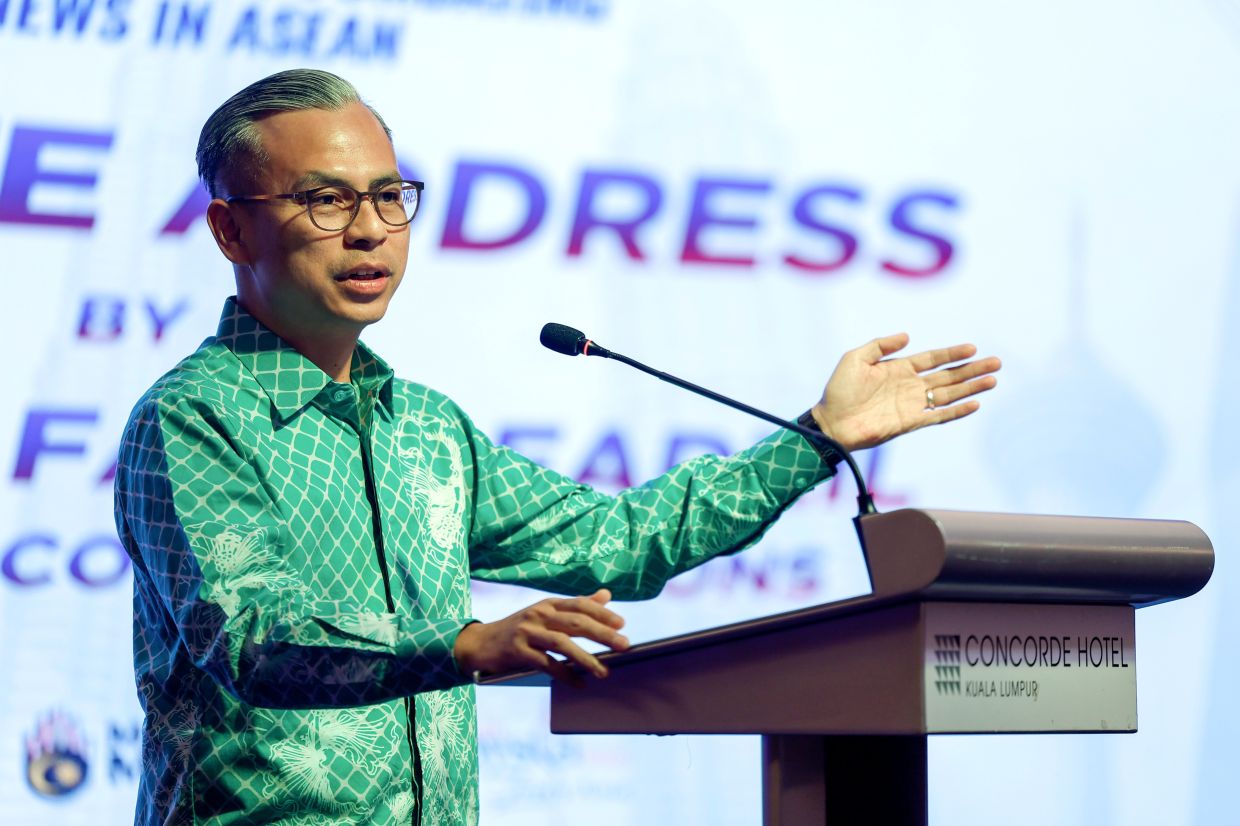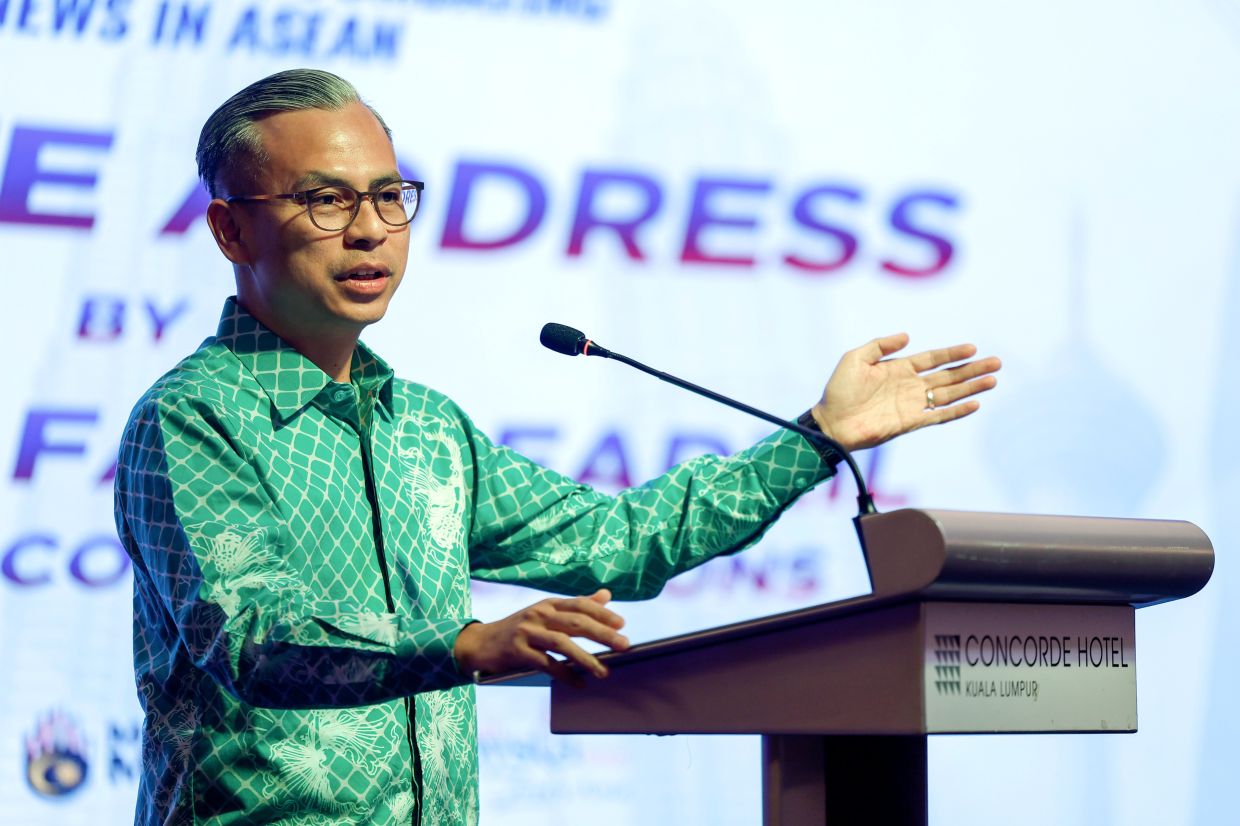
KUALA LUMPUR: A module and tool kit are being developed to help Asean member states combat the spread of fake news in the region, Datuk Fahmi Fadzil (pic) says.
The Communications Minister said this was one of the efforts by the Asean Ministers Responsible for Information (AMRI) to better tackle fake news on social media platforms.
“It is hoped that the module will help Asean member states combat the spread of fake news and disinformation, which is widespread.
“This coming Oct 26, apart from witnessing the inclusion of Timor Leste as the 11th member to Asean, we will also expect to receive the Kuala Lumpur Declaration on the better use of social media,” he told reporters at a press conference after launching the seminar on Developing Training Modules for Combating Fake News in Asean here on Thursday (Oct 2).
He said that the outcome of the declaration will see the Asean toolkit developed to combat fake news.
“Asean is made up of several countries and different nationalities but the problem of abuse of social media, particularly the spread of fake news and other online criminal activities, cannot be accepted.
“When we talk of an Asean community, we must ensure that online safety is a core issue,” he added.
Fahmi said that the module and toolkit will ensure effective communication among Asean member states aimed at creating a safer space for the Asean community.
A total of 45 participants, including Asean-based media practitioners and academicians, attended the two-day seminar to exchange views on fake news and find a common approach in combating disinformation.
On a separate matter, Fahmi said that representatives from the Communications and Multimedia Commission (MCMC) will meet with social media platforms in Singapore next week on several issues.
Among them, he said, was the implementation of the electronic Know-Your-Customer (eKYC) verification using government-issued documents such as MyKad, a passport or MyDigital ID.
“Discussions will not only be on the eKYC but also issues which were raised by MCMC, the police and the Finance Ministry regarding various types of criminal activities such as online gambling and online scams,” he said.
Last month, Fahmi said that the implementation of the electronic identity system would ensure that user identities were fully verified to reduce online fraud and prevent children under 13 from opening their own social media accounts.
He said the use of eKYC is currently encouraged but will be made mandatory when the Online Safety Act comes into effect at the end of this year or early next year.
Platforms such as Facebook, Instagram, WhatsApp, Telegram, TikTok and others do not yet have a truly capable eKYC system, he noted.
He said that they will be requested to implement the eKYC process using official government-issued documents.






